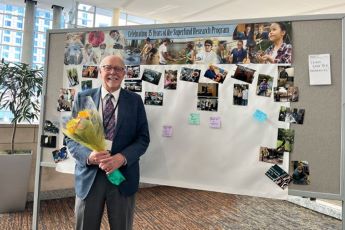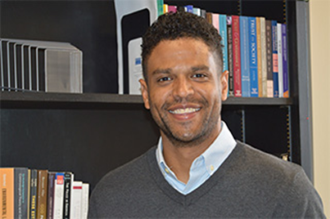Science Leadership

SRP celebrates former SRP Director Bill Suk, Ph.D., who retired in December 2022 after leading the program for 35 years. Suk led the program since its inception in 1987 and was instrumental in creating the innovative and collaborative research network that SRP has become. Suk's vision of multidisciplinary research, training the next generation of scientists, and embracing novel technologies are among his many contributions to making this program a success. Thank you, Bill, and enjoy retirement!
SRP health scientist administrators Michelle Heacock, Ph.D., Heather Henry, Ph.D., and Danielle Carlin, Ph.D., and health scientist Brittany Trottier, M.P.H., will attend the annual meeting of the Society of Toxicology (SOT), March 19-23, in Nashville, Tennessee.
Carlin and University of Louisville SRP Center Director Sanjay Srivastava, Ph.D., are co-hosting a session at SOT about the role of environmental chemicals in initiating and exacerbating cardiopulmonary disease. Carlin is also on the planning committee for a "New Investigator and Funding Insights" session, which will provide multiple perspectives on the NIH grant process, as well as advice for new applicants.
Henry is on the planning committee for the annual meeting of the Interstate Technology and Regulatory Council. The meeting will be held March 20-23 in Boston, Massachusetts, and will bring together environmental leaders and professionals from state and federal agencies, Tribes, industry, and non-profit organizations to work together in the development of revolutionary, consensus-based environmental guidance.
Heacock and collaborators at NIEHS are planning a two-day interactive meeting to present the results of the Telomere Research Network. The meeting will be held Mach 30-31 and will focus on the evaluation of telomere length as an indicator of psychosocial stress and a predictor of health and disease relevant for human population studies.

In a recent NIEHS Grantee Highlight, SRP grantee Joseph Hamm, Ph.D., reflected on his efforts to foster trust-building between communities and the government. Hamm, who leads the Community Engagement Core at the Michigan State University SRP Center, explained that promoting trust can help different groups work collaboratively toward better outcomes for community health and safety.
SRP collaborators from across the U.S. created the Digital Exposure Report-Back Interface (DERBI), an interactive, web-based tool that presents complex chemical exposure data in an easy-to-understand way. SRP-funded researchers at Northeastern University, the University of Arizona, and the University of California, Berkeley, and others use DERBI to help study participants understand their personal environmental exposures, known and suspected health effects, and how to reduce exposures.
to Top



